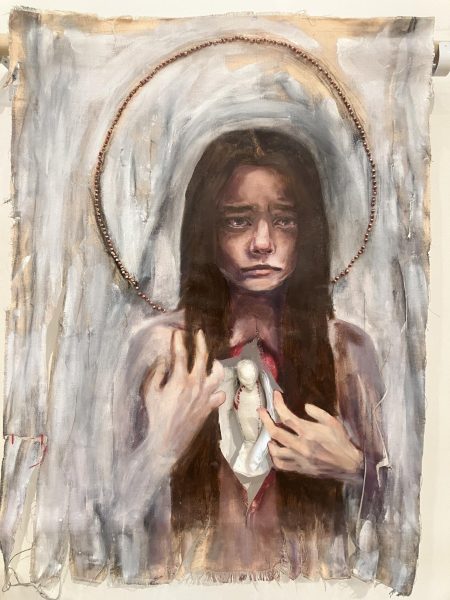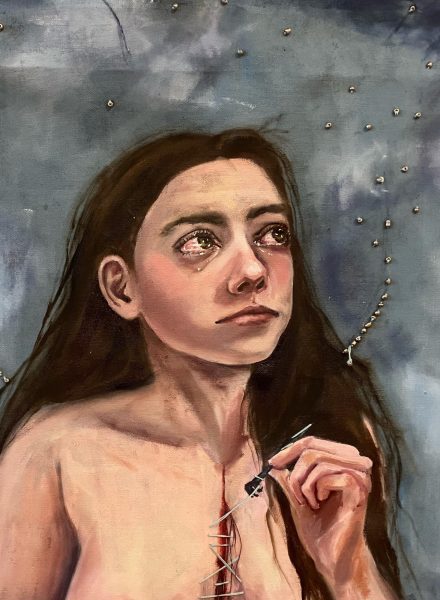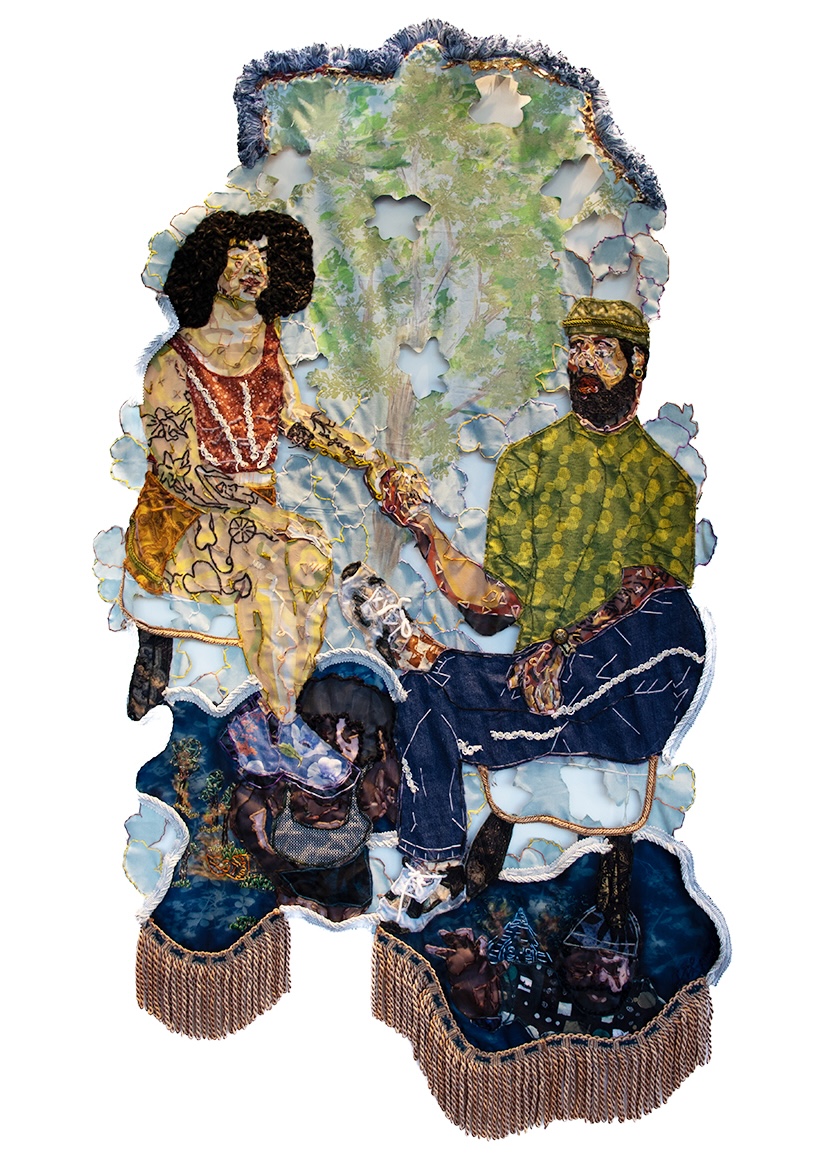The needle pierces the fabric. The thread weaves in and out, fingers nimble and quick as the cloth fuses together. To Josie Love Roebuck, a professor in SOTA, the physical act of sewing is akin to opening a wound and suturing it back together. The action, both painful and healing, is likened to intertwining stories and perspectives, a process she emphasizes in her artistic practice.
“Each thread, each mark that is created, reinforces this healing process that happens,” Roebuck said. “I’m either physically puncturing my canvas with the needle, with an awl, which is my reference of opening that wound. And then by the time I finish a piece, that’s when it’s fully healed; it’s fully been sewn together.”
Roebuck brought these ideas to her residency at ArtWorks, a local nonprofit organization that creates public art. She led a group of 11 artists through eight weeks of free sessions, teaching craft and professional development skills.
The class, ages 16-24, was a part of ArtWorks’ Gallery Fellowship Program, where they traversed themes of healing and resiliency, culminating in an exhibition titled “Threads of Our Lives.”
“I am really fascinated by the parallels between a person’s life and also the connection between that in a quilt,” Roebuck said. “I see them as both these textured, fragmented, layered things, and they both just represent how much meaning a person can have.”
In her own practice, Roebuck creates tapestry-like quilts, piecing together topics such as identities, politics and the fluidity of time. She introduced this approach to her class, guiding them to create art reflecting their personal histories, fears and challenging times.
Under Roebuck’s tutelage, the Fellows learned techniques such as sewing, screen printing and cyanotypes. The result is a mixed-media exhibition featuring artists from diverse backgrounds.
One participating artist, Kendall Hall, is on track to graduate in spring 2026 with a BFA in painting, as well as a major in philosophy. A student of Roebuck’s at NKU, Hall explored religious trauma during their time at the Fellowship.
“Growing up, I accepted God; I loved God. God was an integral part of my life. But as I got older, I realized God did not like me,” Hall said. “So I essentially had to remove something that was very much a part of my life and my identity and my spirit for my own survival.”

Their tapestries present two versions of Hall: one who agonizingly rips out a part of themselves, their obstinate tie to religion and one who shatters a cycle of pain, adopting a new sense of freedom. Both incorporate oil painting and sewing, where the threads quite literally tear through and mend the canvas.
Hall, who grew up queer in a southern conservative church, often uses symbolism to tackle identity and memory in their work.
“My first time making a painting about religious trauma, I presented it to my class, and one of my classmates came up to me and started talking about how she felt like God hated her growing up,” Hall said. “I felt like that was a healing moment for me, and it was a healing moment for her too.”

Through sharing stories that others can ultimately relate to, Roebuck and Hall see the exhibition as a way of fostering empathy. Just as threads are painfully ripped out, so is hurt and grief. But, to be sewn back together is its own type of cure.
“My hope is always to connect with the audience,” Roebuck said. “These are very personal stories, but typically with my work…people have been able to express their own stories with me. So this is where that connection, that full healing, comes into play.”
“Threads of Our Lives” will be on display for free until December 4 at the Your Name Here Gallery. The exhibition features work from Gallery Fellows Emma Sullivan, Anessa Car, Kendall Hall, Drew Wann, Cameron Barnes, Keegan Myers, Eve Miller, Christina Sifri, Harmony Jackson, G Bhalerao and Jesse Cushing.


